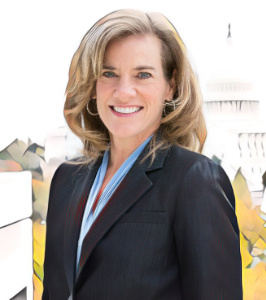Religious exemptions to vaccine mandates
Until courts sift through the claims, the impact of vaccine mandates and religious exemptions will depend primarily on decisions made by individuals that promote or undercut the goals of public health and the responsible exercise of religious liberty.

Each year, I co-teach a seminar on church-state law at Georgetown University Law Center. It covers major themes in religious liberty law and gives students an opportunity to explore topics in depth for a paper and class presentation. Invariably, at least one student picks a topic related to religion and health care.
I don’t think that’s because religious objections to medical care are common. More likely, it’s because religious claims that conflict with health measures vividly illustrate the tensions between individual freedom and collective responsibility. Wherever possible, we should protect both: freedom and responsibility are two sides of the same coin.
As our class met online this year due to the pandemic, the topic of religious exemptions in health care was especially popular. Since the spring semester, issues presented in hypotheticals have moved from classrooms to courtrooms and political debates, with high stakes for both public health and the integrity of religious liberty law. As vaccine mandates become more widespread, here are a few things to keep in mind.
The purpose of a vaccine mandate is to achieve a level of herd immunity that protects the community at large, including those who cannot be vaccinated for medical reasons. Claims for religious exemptions often arise in response to government orders, typically issued at the state and local level. Other times they arise as requests for religious accommodations in the workplace that should be granted unless they cause undue hardship for the employer. In both contexts, there is a weighing of burdens and benefits that may support exemptions to the mandate.
Regardless of context, the more exemptions allowed (beyond medical exemptions consistent with the mandate’s purpose), the less effective the vaccine mandate. COVID-19 vaccines have proven to be safe, effective and widely available, while the virus continues to cause devastating harm. Absent higher rates of voluntary vaccinations, mandatory policies and interest in religious exemptions will both become more widespread. Under current law, religious exemptions seem unlikely to be required.
Several Supreme Court cases are often cited to support the constitutionality of vaccine mandates, despite religious objections. In Jacobson v. Massachusetts (1905), the Court upheld a local government’s compulsory smallpox vaccination law as within the government’s power to protect the safety of the community against the threats posed by an epidemic. In Zucht v. King (1922), an ordinance that required vaccination in order to enroll in schools was similarly upheld “for the protection of the public health.” Underscoring the government’s authority to protect health and safety, the Court also mentioned compulsory vaccination laws in a child labor case, Prince v. Massachusetts (1944), stating plainly, “Neither rights of religion nor rights of parenthood are beyond limitation.”
All 50 states have compulsory school vaccination laws. Before the rise of COVID-19 and the politicization of efforts to stem its spread, there was relatively little controversy about mandatory vaccinations beyond a small, vocal contingent that opposes vaccinations altogether and is willing to withdraw kids from schools. While most compulsory vaccination laws have exemptions, recent outbreaks of illnesses in areas with low vaccination rates demonstrate the danger. In response, some states have eliminated non-medical exemptions, including religious exemptions. These reversals reveal that exemptions to vaccine mandates can be difficult to accommodate; limiting exemptions can promote the public health goals vaccine mandates are designed to accomplish.
The burden of a vaccine may be substantial on those whose religious practices reject medical interventions or avoid medical care altogether in lieu of prayer. At the same time, the government’s compelling interest in public health may outweigh those burdens. In light of the important public health purpose served by vaccines, some question whether there is any good faith basis for claims of religious objections. No major religions oppose vaccines; most encourage them as a way of caring for their adherents and their surrounding communities. But more than a few pastors and lawyers are making a business of assisting those who seek religious exemptions. Some provide counsel on how to present claims more likely to pass as resting on sincerely held religious beliefs. While a small number of such exemptions may be warranted, I agree with Curtis Chang, the former pastor and co-founder of Christians and the Vaccine, who noted in a recent New York Times op-ed: “The biggest threat to any legitimate right is the illegitimate abuse of that right.”
Current members of the Supreme Court have questioned some of the precedents regarding vaccine mandates. No doubt the politics of COVID-19, along with the Supreme Court’s shifting constitutional standards and recent deference toward religious claimants, will ignite intense debate on these issues. Until courts sift through the claims, the impact of vaccine mandates and religious exemptions will depend primarily on decisions made by individuals that promote or undercut the goals of public health and the responsible exercise of religious liberty.
Holly Hollman is general counsel and associate executive director of BJC.
A shorter version of this column first appeared in the fall 2021 edition of Report from the Capital. You can download it as a PDF or read a digital flip-through edition.




